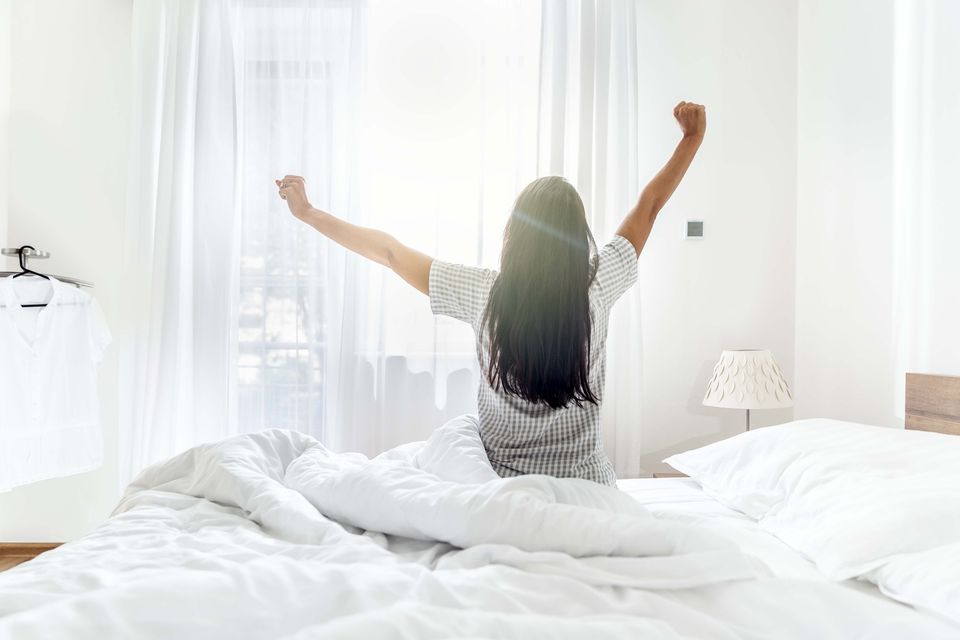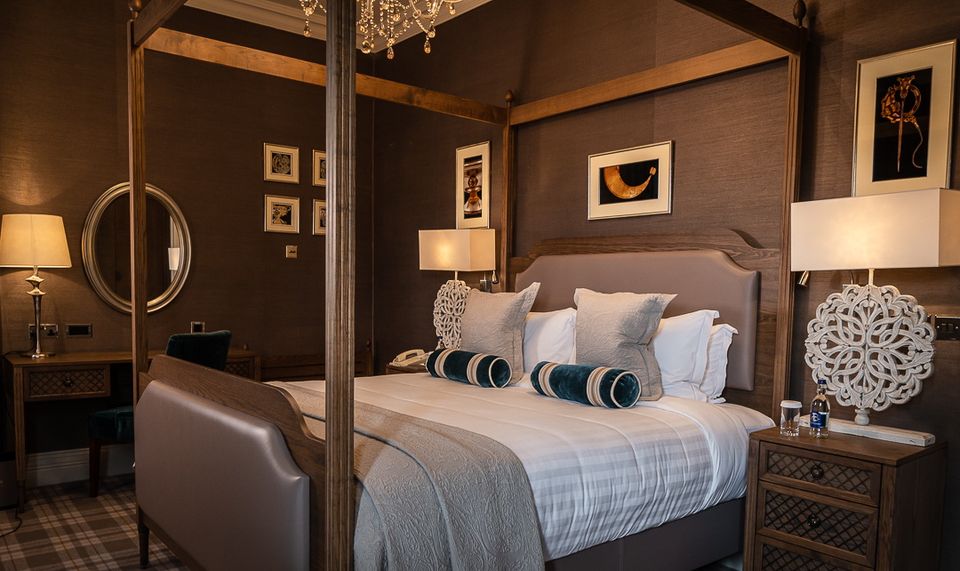Sleep tourism wakes up – from pillow sprays to €15,000 hotel mattresses
Temperature-controlled beds, muscle massagers and professional sleep coaches – sleep tourism is on the rise
A good night's sleep... Photo: Getty
The effects and possible consequences of long-term sleep deprivation are becoming better known – ranging from a increased risk of obesity to Alzheimer's, depression and cardiovascular disease.
It’s not surprising then, that efforts are being made to promote sleep.
In fact, the sleep tourism market is estimated to grow by almost 8pc and more than $400 billion between now and 2028, according to US market research.
All over the world, hotels are looking to provide, and market, a better’s night’s rest.
The Beaumont hotel in London has ROOM, for example – a room in a sculpture designed by artist Antony Gormley. It’s a dark cave without any form of distraction: no television, no telephone reception. The bedroom, covered with dark wooden panels, naturally has a bed - but that is the only piece of furniture in it. Prices start from £655 (€767).
In Ireland, Dromoland Castle recently introduced a new director of sleep, Ryan Logue, who can advise on everything from sleep-aiding scents like lavender and chamomile to room temperatures. The hotel’s new spa has also developed a ‘Sleep Well Smoothie’, and was last year named TripAdvisor’s Best Hotel for Sleep in 2023.
Hyatt hotels in New Zealand and Australia offer a special sleep program. For $50, guests can book a special sleeping package, including bath salts, eye mask, tea and a special aromatic roll on pen.
The Thomond Suite at Dromoland Castle
From pillow sprays to sleep coaches, sleep tourism is turning into a complete business model, with all kinds of products, relaxation equipment and a selection of the best beds - often in collaboration with an (exclusive) manufacturer. A unique night's sleep in a special bed can ensure that the traveller is so impressed that she also wants such a bed at home – Westin famously sells its Heavenly Beds, for example.
The Dylan in Amsterdam has so-called FreshBeds: mattresses where, among other things, the temperature can be regulated and equipped with a medical HEPA filter, which ensures air purification and therefore hygiene. A single mattress has a retail value of €15,000.
Read more
“Sleep is part of the broader trend of a healthy lifestyle," says its marketing manager Max Dijkema, “which people also want to continue in a hotel. With better sleep you actually buy time for yourself: you are more rested and can therefore see more of the area, in this case Amsterdam.”
And the starting price for a room with such high-tech beds? €1,250.
In Switzerland, The Alpina Gstaad is also addressing “one of the biggest health issues of our time” with new Sleep Suites, including climate-controlled beds and extras like “blue light-blocking glasses”.
'Sleep Suite' - inside a luxury hotel room with climate-controlled beds
“It is of course a smart marketing trick,” says Dutch hospitality trend-watcher Vincent van Dijk.
“It responds to something that many people suffer from: sleep problems. If you can remedy that by offering a package around it, that’s smart. After all, you can use everything: from technical gadgets and therapies to collaborations with bed manufacturers. Of course it is about money for the hotels, and it also enhances their image.”
CitizenM, with over a dozen hotels throughout Europe, has a so-called Brainwaves program which uses special music with scientifically researched frequencies, tones and rhythms to stimulate sleep.
However, sleep expert Floris Wouterson says a night on a good mattress in a luxury hotel is not exactly the solution to all sleep problems.
“It is a tool, not a solution. Of course it is important to sleep in a good bed - after all you spend about a third of your life in it, but it should not be the case that you sleep better in a hotel than at home... 'a good night's sleep in a hotel' can mean that things are not completely in order at home.”
“The most important function of a hotel is that you can sleep well, but usually a stay is promoted with a good view or a great restaurant, while sleeping comfort is often minimal, with a lot of noise and the wrong temperature in the room,” he adds.
"It’s good that bed rest is now also an important factor in selling an overnight stay.”
- Additional reporting by Pól Ó Conghaile
Join the Irish Independent WhatsApp channel
Stay up to date with all the latest news
















